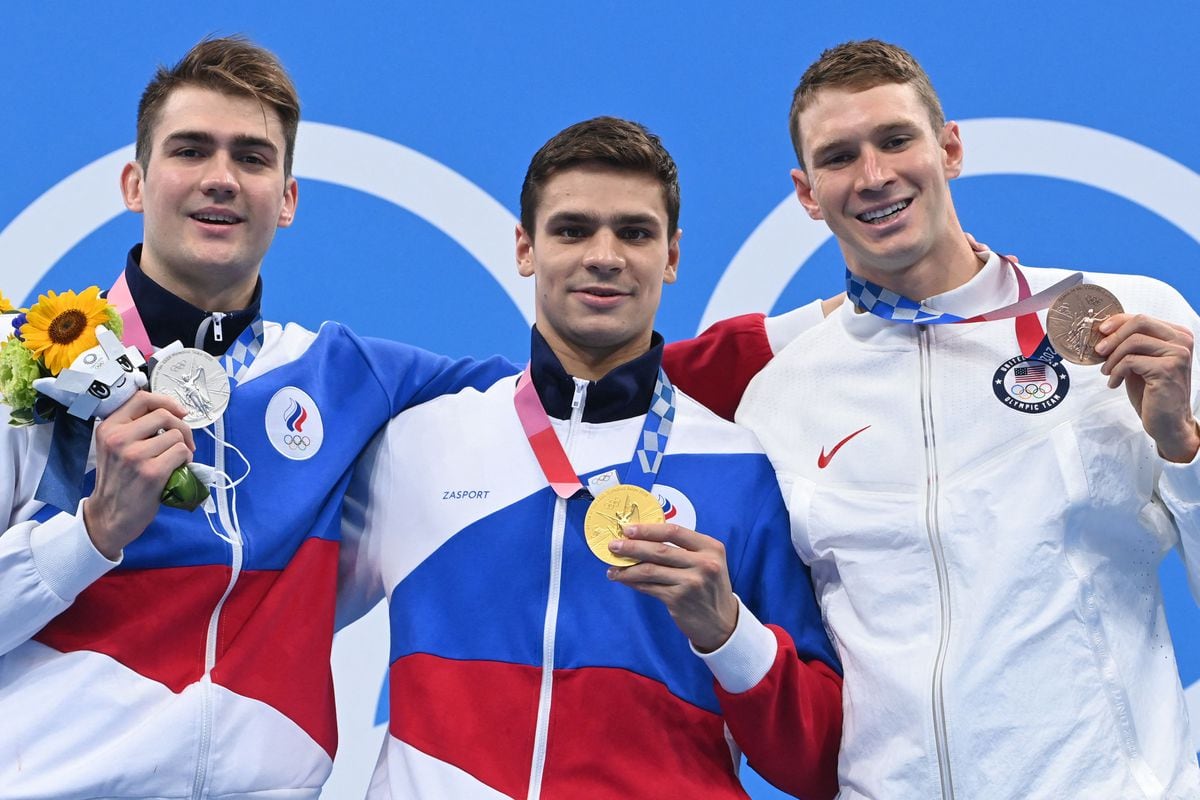Ryan Murphy did not arrive in time to save his kingdom. When the Chicago giant managed to speed up his paddles, move his 100-pound body through the water and accelerate on the second pitch to come back faster and press the finish plate in the 100 backstroke final, he discovered that all was lost: the gold medal, the revalidation of the Olympic title that he won in Rio, and the supremacy of the United States. After a succession of six Olympics of uninterrupted leadership in this test, the Americans gave up power. The new occupant of the noblest part of the podium was Russian Evgeny Rylov, the skinny guy from Novotroitsk who, at 24, won the highest award in a career marked by persistence from a young age. Thanks to this provincial,Russia won an Olympic swimming championship again for the first time since 1996.
More information
First world record for swimming in pandemic
Popov has a successor
Hugo González: "I have improved the front crawl because I train it less"
Russia's triumph was twofold.
Because Rylov was accompanied by his successor, the formidable Kliment Kolesnikov.
They both entered the race like arrows.
The starting horn sounded and Rylov on lane two, Kolesnikov on lane 4 and Murphy on lane 5 dove to cover the first 50 meters of diving allowance.
Murphy emerged earlier.
This used to not be the norm.
Until the 2016 Games, no one had mastered the underwater wave swim better than the Americans.
Kolesnikov gave a display of ten kicks.
Quick, short, powerful, they projected their long, flexible body towards the surface to begin to gain an advantage that the American could no longer regain.
The Muscovite had a higher stroke rate and made the turn in 24.90 seconds. At world record pace. His compatriot on street two was six hundredths slower. The two spearheaded the event and competed for gold in an unprecedented heads-up. A historic event for swimming in Russia, which is experiencing a period of splendor under the government impulse that Vladimir Putin gives to sports and thanks to private financing. In this section the mysterious millionaire Konstantin Grigorishin intervenes, seducer of the great figures of world swimming with prizes that not even FINA pays, organizer of the International Swimming League and founder of the Energy Standard, the club that recruits some of the best swimmers Slavs, including Rylov and Kolesnikov. Assisted by coaches from all over the world,those elected alternate concentrations in Moscow and Turkey, gain prestige, money, and opportunities for training and competitive friction that before they did not have if they did not emigrate to the West.
Agile, light, elastic, floating at the most efficient angle, legs like propellers underwater with barely touching the surface and the torso raised to offer minimal resistance, the two Russians advanced towards the last wall firmly at the head of the peloton. They did not break Murphy's world record in Rio for one fingernail. Then, the American activated his powerful engine to fly back in 26.58 seconds. In Tokyo, it failed to take off. His 26.93s on the second pitch fell short. Everything was decided between Russians and it was in the last subway. Rylov prevailed, the smallest, 1.85, under 80 kilos, lean, bony and very agile to bend and put his hand in first, foreshortening with the arm and shoulder. He touched the plate in 51.98s. Kolesnikov at 52.00s and Murphy at 52.19s.
Rylov and Kolesnikov's double returned Russian swimming to the top after nearly three decades.
The last time Russia won an Olympic title in inline swimming was at the 1996 Atlanta Games, when Alexander Popov won the 100 and 50 freestyle while Denis Pankratov took gold in the 100 and 200 butterfly.
The Spaniard Hugo González de Oliveira swam with Rylov.
Bordered on lane one, he finished the 100th fastest of his career.
He was sixth with a time of 52.78s.
A small national feat and an evolution for Spanish swimming after Aschwin Wildeboer's seventh place in the final of the Beijing Games, with a time of 53.51s.
Subscribe here
to our special newsletter about the Tokyo Games

